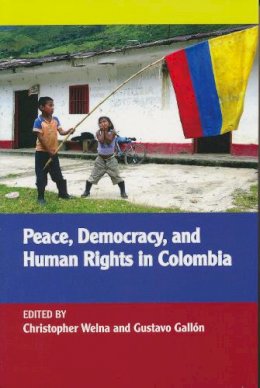
Peace, Democracy, and Human Rights in Colombia (ND Kellogg Inst Int'l Studies)
Christopher Welna (Ed.)
Colombia is home to the longest-running guerilla war in this hemisphere, a war that has evolved into a multisided conflict. Over forty years ago guerrilla leaders launched their campaign to overthrow the government in the wave of Latin American revolutionary movements. While such movements in other countries from that era have negotiated settlements or suffered defeat, in Colombia two major guerrilla groups soldier on, at times in competition with each other. In the intervening years, these groups have been joined by new antagonists who sometimes strike alliances, though rivalry generally prevails. Drug traffickers, right-wing paramilitary squads, government police units, Colombia's armed forces, and U.S. advisors, among others, have all joined the fray.
Why has Colombia's internal war become so entrenched? Why have peace efforts failed to produce durable agreements? Why has Colombia's long-standing democracy experienced such glaring failures? Who should be held accountable for the violence suffered by the Colombian people? Peace, Democracy, and Human Rights in Colombia addresses these pressing questions and delves deeply into the underlying politics and bedrock human rights issues in Colombia. Authored by leading Colombian and U.S. scholars, the chapters examine Colombia's attempts at negotiating peace, the weakening of political institutions, patterns of violence, and human-rights politics. Contributors also consider the influential role played by the United States and the impact of drugs on politics.
For scholars, this timely collection provides a theoretical understanding of human rights violations, corruption, political fragmentation, and reform. Policy makers will find careful analyses and debate about policy outcomes and alternatives, as well as recommendations for action to protect rights, strengthen democracy, and pursue peace. Students will find a route to understanding the history and dynamics of Colombia's contemporary challenges of human rights, democracy, and peace.
Product Details
About Christopher Welna (Ed.)
Reviews for Peace, Democracy, and Human Rights in Colombia (ND Kellogg Inst Int'l Studies)
